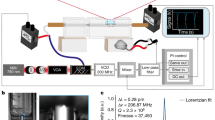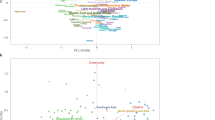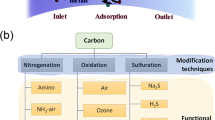Abstract
A METHOD for the concentration of enzymes and other biological colloids was recently described by Guy E. Youngbourg1. By this method the volume of the active solution is reduced by dialysing it against a concentrated solution of dextrin. In a previous paper2 concerning the concentration of taka-diastase it was shown that this method was impracticable for sugar-hydrolysing enzymes, owing to the diffusion of part of the dextrin into the solution. Seeking other methods of concentration, we succeeded in finding a simple procedure by dialysing against 96 percent ethyl alcohol or acetone as the outside solution (provided only that the active substance is not inactivated by them). By this procedure the volume of the active substance is rapidly reduced. A partial precipitation from the solution during concentration sometimes occurs, but does not interfere with the final result.
This is a preview of subscription content, access via your institution
Access options
Subscribe to this journal
Receive 51 print issues and online access
$199.00 per year
only $3.90 per issue
Buy this article
- Purchase on Springer Link
- Instant access to full article PDF
Prices may be subject to local taxes which are calculated during checkout
Similar content being viewed by others
References
Youngbourg, Guy E., Science, 94, 498 (1941).
Feigenbaum, J., Science (in the press).
Author information
Authors and Affiliations
Rights and permissions
About this article
Cite this article
FEIGENBAUM, J. A Simple Method for Enzyme Concentration. Nature 150, 318–319 (1942). https://doi.org/10.1038/150318b0
Issue Date:
DOI: https://doi.org/10.1038/150318b0
Comments
By submitting a comment you agree to abide by our Terms and Community Guidelines. If you find something abusive or that does not comply with our terms or guidelines please flag it as inappropriate.



